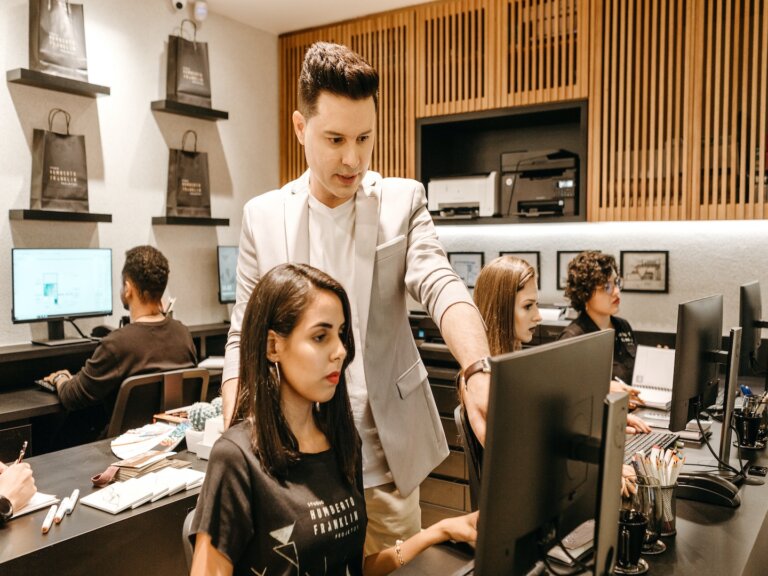Do you know how you like to be managed? Maybe not. Do you know how you hate being managed? Probably!
Most of us have dealt with bad managers over the course of our careers – so when we’re asked “What do you look for in a boss?” during an interview, it’s tempting to vent about toxic experiences from the past. Don’t fall for it!
This common interview question is very similar to “What did you dislike about your last job?”, but flipped. The hiring manager is trying to get a sense of your work style. They’re really asking, “Will you mesh well with your next manager?”
Here are some dos and don’ts to keep in mind the next time you’re asked to describe your ideal boss!
❌DON’T SAY: “I want someone who won’t micromanage me like my last boss!”😤
We get it, your last boss was terrible. However, they were good for one thing: teaching you what type of management doesn’t work for you. Instead of sharing what you didn’t like about them, however, try to flip their negative traits into positives to explain what you’re looking for.
For instance, if you experienced micromanagement and were bored, you learned that a hands-off approach could give you room to flex your creativity. On the flip side, if your manager didn’t communicate expectations and left you in the dark, you’d probably prefer more structure and guidance as you work.
❌DON’T SAY: “Anything works for me!”🤷🏿
Here’s a fun fact: managers account for at least 70% of the variance in employee engagement. What does that mean? Basically, managers matter – especially when it comes to happiness levels at work.
You may be a relaxed person, but don’t kid yourself. It’s not realistic to say that anything works for you. Instead, explain that while you feel comfortable working with lots of different personality types or leadership styles, you are particularly receptive to [fill in the blank here].
❌DON’T SAY: “I don’t really know…”😅
But… you do know! If you’ve had any sort of experience working with others before, you definitely have had positive or negative experiences with someone in a leadership position. Think critically about those before you shrug off this interview question.
If you need more help, there are tons of resources online to help you think of good management techniques. For instance, you might really appreciate a team-focused approach from your next boss – or maybe you need a manager who offers frequent feedback on an individual basis. It’s all up to your preference!
✅DO SAY: Any of the below options!
- “I resonate with the fact that your company values are X, Y, and Z. My ideal boss would embody those values by [insert ways to demonstrate values here].”
- “I’ve worked with a number of managers during my career, and through each experience with them, I was able to see a pattern in the type of management I like best. For instance, at my last job, my boss [insert thing you liked that they did here]. At my position prior to that, I appreciated that my manager [insert related thing you liked that they did here].”
- “I’ve been grateful for every experience during my career so far, but I did have one manager whose style didn’t line up with my own. They were focused on [insert thing you don’t like here], and while that works for some people, I found it hard to produce my best work under those conditions because of [explain your personality/workflow]. It taught me that I thrive under [leadership style you enjoy] instead.”
We hope these sample answers help you connect with the job (and manager!) of your dreams. For more tips like this, make sure to join the Pivot + Edge Talent Network. We’re always sharing our top career insights, hiring tips and all the latest news from our team, and we can’t wait to connect with you!







